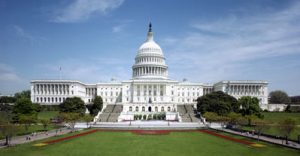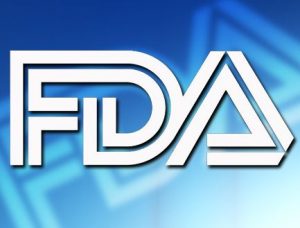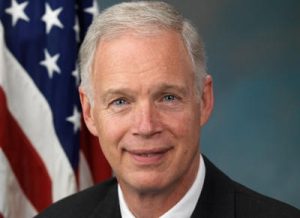U.S. Congressmen Resume Efforts to Ease FDA Vaping Regulations
Republican congressmen Tom Cole (Oklahoma) and Sanford Bishop (Georgia) have recently introduced legislation to amend the U.S. Food and Drug Administration’s regulations of new tobacco products. They are attempting to change the predicate date for new tobacco products from February 15, 2007 to August 8, 2016, the day that the FDA regulations came into effect, thus ensuring that most vaping products remain on the market without having to go through the expensive Pre-Market Tobacco Application (PMTA) process.
 In 2009, the Tobacco Control Act gave the Food and Drug Administration the authority to issue deeming regulations for tobacco products, a category that includes electronic cigarettes and other vaping devices, even though they contain no actual tobacco. Last year, the administration announced its final rules, which included a controversial Pre-Market Tobacco Application (PMTA) process for any vaping products launched after the set “grandfather date” of February 15, 2007.
In 2009, the Tobacco Control Act gave the Food and Drug Administration the authority to issue deeming regulations for tobacco products, a category that includes electronic cigarettes and other vaping devices, even though they contain no actual tobacco. Last year, the administration announced its final rules, which included a controversial Pre-Market Tobacco Application (PMTA) process for any vaping products launched after the set “grandfather date” of February 15, 2007.
That means that any and all vaping products and accessories released into the market after that predicate date would have to go through a burdensome and costly approval process in order to be sold legally after August 8, 2018. PMTAs are required not only for vaping devices, but also for e-liquids, batteries, digital displays and even the programmable software of a vaporizer. And while the FDA estimated the cost of a single application to be around $330,000, experts believe that it may actually surpass $1 million.
Just one Pre-Market Tobacco Application would put a heavy strain on the budgets of small businesses, but considering that most of them have dozens or even hundreds of products, the combined cost would almost certainly put 99% of them out of business. That would leave the vaping industry in the hands of the only entities that can actually afford to cover the cost of these applications – the tobacco companies.
The only alternative to PMTAs offered by the FDA is called the Substantial Equivalence Application. This allows companies to keep their product on the market without going through the pre-market approval process if they can prove it is substantially equivalent to a product that was on the market before February 15, 2007. That’s unlikely to happen for the vast majority of vaping products, considering that technology has come a long way in 10 years. Back then, the only products on the market were rudimentary cigalikes, while today we have dozens of different models, and technology like temperature-controlled vaping, variable wattage, etc.
The most controversial aspect of this rule was the chosen predicate date. While many activists in the vaping industry called on the FDA, last year, to change it from February 15, 2007 to August 8, 2016, in order to allow users easy access to advanced vaping products, the agency declined, arguing that it did not have the authority to modify the grandfather date. Only Congress could act to change the predicate date set by the Tobacco Control Act, they said.
Last year, Republican congressmen Tom Cole (Oklahoma) and Sanford Bishop (Georgia) introduced an amendment to to the Agriculture and Rural Development Appropriations Bill that aimed to do just what the FDA claimed it couldn’t – move the predicate date to the day that the new tobacco product regulations came into effect, August 8, 2016. Unfortunately, the bill failed to get into federal budget legislation, after U.S. lawmakers failed to pass a budget last fall, deferring the process until April 2017.
Now Cole and Bishop have renewed their efforts to get the grandfather date changed by proposing new legislation entitled the “FDA Deeming Authority Clarification Act of 2017“. Apart from moving the date to August 8, 2016, it also proposes licensing and advertising guidelines for vaping products, and pushes the FDA to set in place safety standards for batteries.
“While there is disagreement about whether certain tobacco products should be regulated or not, there should be agreement that new regulations should apply to products moving forward, and not retroactively,” Congressman Cole said. “Inconsistent authority like this will be detrimental and unfair to many manufacturers and businesses. This legislation preserves the FDA’s ability to regulate these products on par with cigarettes, grandfathers currently available products and then requires the FDA’s approval before any new product is introduced.”
“Vapor products offer a promising path for harm reduction for those seeking to quit or limit their smoking,” Bishop added. “This legislation would ensure the FDA’s regulatory process does not limit the availability of safer tobacco options for those seeking to make use of them.”
The new legislation was introduced on February 16, 2017, but there is already a lot of misinformation about it in the media. For example, The Public Broadcasting Service (PBS), calls this legislative effort an attempt by “supporters of the tobacco industry” to “help e-cigarette companies escape rules adopted under President Barack Obama.” That is a flat out lie, considering that tobacco companies are the ones benefiting from the current FDA regulations. They also conveniently forget to mention that the current regulations make it considerably harder for vaping products to stay on the market than cigarettes. But we’ve come to expect this kind of reporting from major media outlets…















